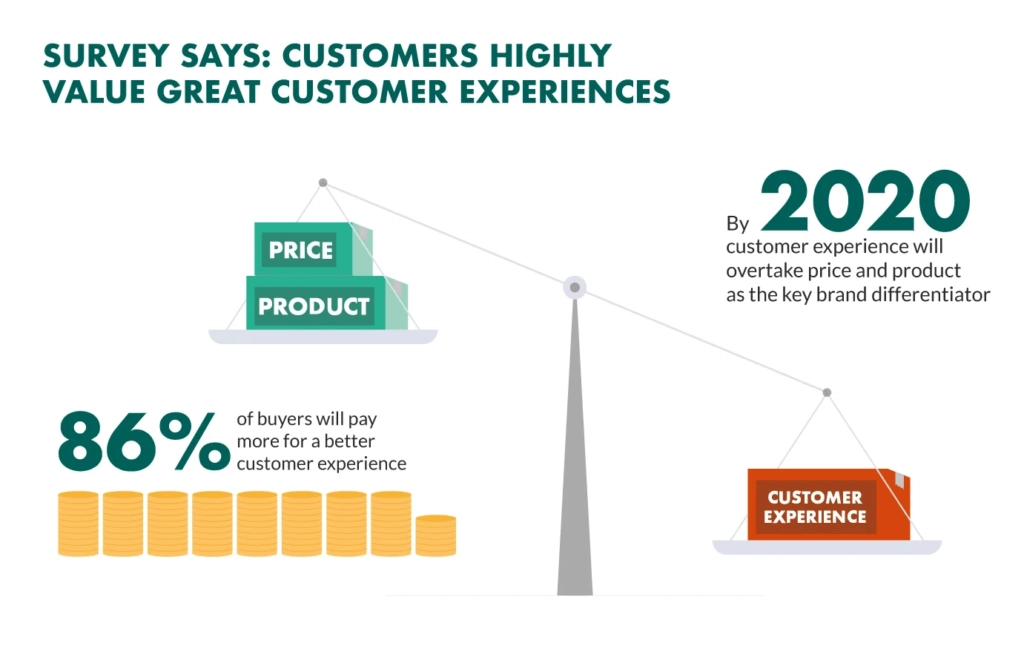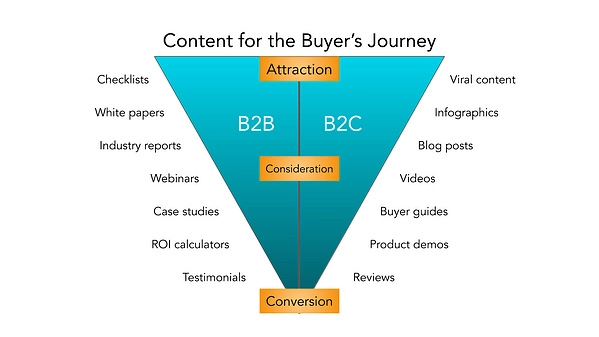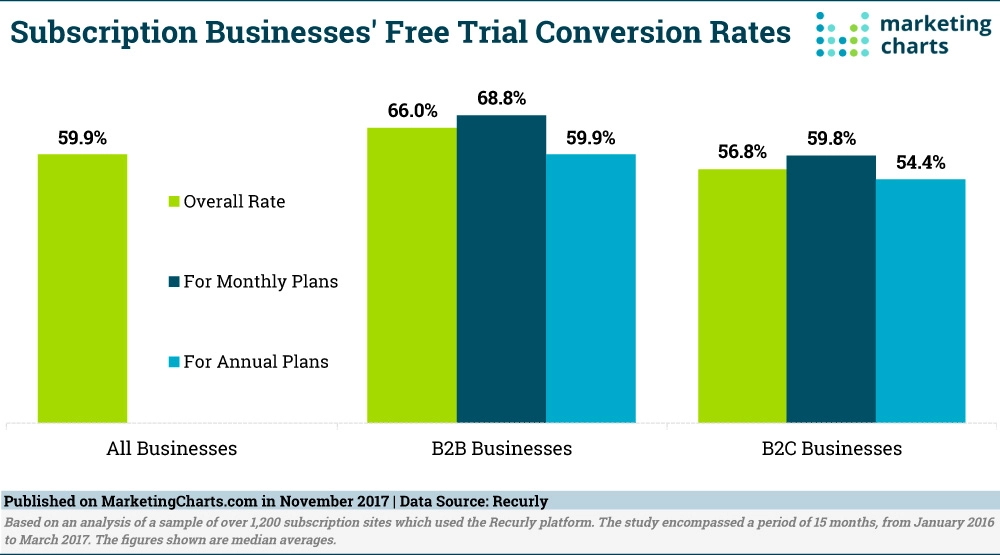
Introduction
In a highly competitive business environment, customer experience is increasingly becoming a key differentiator. Customers are no longer basing their loyalty to brands on products or prices.
Rather, they are choosing to stay loyal for the positive experiences they receive from them.
As a matter of fact, 81% of businesses that offer customers positive experiences perform better than their competitors.
The results of this are tangible. Statistics show that companies that have an annual revenue of $1 billion can earn upto $700 million in additional revenue by providing customers or prospects with positive experiences.

Source: Super Office
In and by itself, customer experience is broad. However, when it comes to selling, a lot of it has to do with the value that a company provides to prospects throughout the buying process.
This means giving potential buyers insights, actions, and information that they can’t find by themselves to enable them make informed decisions.
There are various ways that B2B companies can do this, below we explore 10 of them.
#1. Publish Useful Online Content
74% of B2B buyers search the internet before they decide to talk to a sales representative.
Further, statistics show that online content has an impact on 90% of B2B buyers’ purchase decisions.
As such, one way of supporting prospects in their purchase journey is to publish blogs that address the questions or information gaps they might have as they search for products or services.
Blog content adds value to prospects by educating buyers on the solutions you offer. It also positions your company as a thought leader in the industry. This enhances your credibility in the sight of your customers and prospects.
To ensure your customers find value in your content, create a content plan with topics that respond to questions that prospects and customers ask frequently. B2B buyers are also keen to know how your solutions work.
To meet this need, consider publishing online content that explains the technical aspects of the solutions you offer. Such content could be in the form of white papers, industry reports, and demo videos.
With such content, your prospects will treasure your expertise and look up to you as the trusted source of information throughout the purchase process.
#2. Offer Customers Free Resources
Another great way to add value to your customers and prospects as they go through the buying process is to offer them free resources.
These resources are particularly useful for B2B customers who often are focused on expertise, want to be educated and are driven by logic. Besides showcasing your brand’s ability to provide the solutions that prospects or customers are looking for, free resources provide a unique opportunity for you to grow your brand awareness.
B2B companies can create and distribute free resources in various forms including case studies, white papers, industry reports, and webinars as shown in the image below.

Besides supporting customers in their research journey, free resources can play a key role in generating quality leads for your company. The best way to do this is to create landing pages for each free resource to capture leads.
#3. Personalize Interactions with Customers or Prospects
Customizing your communication with prospects and customers provides a powerful way of adding value to them.
Even when customers and prospects have not purchased anything from your company, 85% of them still expect personalized communication – according to data from Evergage.
Personalizing your interactions gives customers a positive buying experience resulting in higher conversions. This is evidenced by statistics from Epsilon that show that 80% of prospects are likely to buy from companies that offer personalized experiences.
To personalize your interactions, you need to gather customer behavior data and use it to customize your communication. You can do this effectively by leveraging the contact information that your leads leave online and use it to:
- Personalize marketing emails that you send to your leads
- Segment your leads based on their life cycle stage or buyer personas
- Share content that they are interested in. For example, if a prospect downloads an ebook about financial accounts, send them offers or blog content that delves deeper into the subject
- Customize sales pitches based on insights that you get from your leads
#4. Create a Self Service Portal
Customer expectations of support services are shifting.
Increasingly, customers are preferring to find answers and solutions by themselves. More than ever before, modern day customers want to access support 24/7. They want to learn stuff and resolve their issues without having to engage customer reps, even for the most basic queries.
In fact, a survey by Forrester Research registered a 9% increase in the use of Help and FAQ sections of business websites over a two year period.
Creating self service portals is a great strategy that B2B companies can use to add value to their customers throughout the purchase process. With 90% of customers expecting businesses to have FAQ sections or self-service portals on their websites, creating one enables companies to meet this expectation.
A self service portal is basically a website that contains useful resources and information that enable users to find the answers they need or resolve any issues they might have during the purchase process, fast and with ease.
Ideally, self service portals should be accessible via company websites and serve various self-help features for use by customers.
Some common features of self-service portals include knowledge bases with useful articles , product or service demo videos, self-logging for issue tickets, and chat services.
#5. Provide Product Tutorials
Product tutorials provide a great way for B2B companies to add value to customers.
They play an important role in guiding customers and prospects on how they should use your products to get the results they want.
For instance, if your company’s offering is a software product, you can create a tutorial to take users through the installation or set up process. Likewise, a companystrong
Product tutorials provide a great way for B2B companies to add value to customers.
that has equipment in its offerings can help prospects or customers set the equipment up using a tutorial.
To make your tutorials effect, consider outlining the step-by-step process to make it easier for customers to follow. Make the explanations simple and brief so that customers find it easier to understand your product.
#6. Help Customers Succeed
When customers are considering buying a product or a service, they want to be sure that it will solve their problems.
B2B companies can address this need by providing customers with the support they need to succeed with their offerings.
This is particularly important for SaaS products. The best way to do this is to structure the onboarding process in a way that customers get quick wins during the initial stages of using the product.
B2B companies can also help customers to succeed by helping them identify needs that could be addressed by other products or services that they offer. The way to do this is to talk to customers about their vision and what they need to realize that vision.
If you have no way of helping directly, your customers will be happy if you can refer them to a company that can help them.
#7. Give Free Trials
Free trials are among the most powerful tools that B2B companies can use to give prospects and customers a pleasant buying experience.
Existing statistics show that generally, for every 10 free trials, 6 convert to subscriptions. Free trials are more effective in B2B marketing with conversion rates standing at 66%.

Source: Marketing Charts
The reality is, most buyers love free trials. Companies that give them get more rewards than those that don’t.
Free trials have a way of satisfying any curiosities your customers might have about a product or a service. It offers them value by giving them an opportunity to test your offerings then decide whether it suits their needs or not.
For B2B companies, free trials provide an opportunity to show off their offerings including the unique features they offer. They also show your prospects that you are confident about your company’s offerings and that you are willing to allow them to make an informed decision when it comes to making a purchase decision.
#8. Provide Omni Channel Communication
Communication is critical in business.
Customers expect to receive relevant and personalized communication that captures their attention amidst busy schedules. They also expect this communication to be delivered through their most preferred channel.
B2B companies can leverage omnichannel communication to provide value to the customers throughout the purchase process.
The way to provide positive experiences is to make it seamless for customers to engage with your company across different channels. B2B companies can do this by making organizational communication accessible to customers on all communication channels including social media, mobile responsive websites, and emails among others.
#9. Give Bundled Offers
If you have customers who purchase the same service or product after a given period of time – could be monthly or annually – consider giving them special offers.
Your offers should allow them to get the offering they buy plus an extra feature or product for a slightly higher cost. This is not just a great way for adding value to your customers, but it’s also a strategy from selling items that may not be moving fast.
By making such products or services part of a bundled offer, you create an opportunity for customers or try them out.
#10. Practice Social Listening
Social listening involves tracking and analyzing the conversations that your target audience has on social media that touch on your brand.
By listening to what customers or prospects are saying, you can support them through the buying process. The easiest way to do this is to respond to the comments, issues or questions that they post on your social media platforms.
Customers are happy when the brands they follow interact with them on social media in a positive way – it makes them feel valued. This act alone can boost your company’s chances for selling to such customers in future.
Final Thoughts
B2B buyers have a long buying process because they are more complicated and purchase decisions involve multiple decision makers. To keep them interested in your offerings, you need to find ways to give them a positive buying experience. The best way to do this is find ways to add value to them throughout the purchase process. If you have not started doing so already, pick a few strategies from the 10 discussed above and start giving your customer pleasant buying experiences today.
Our blog
Latest blog posts
Tool and strategies modern teams need to help their companies grow.

Modern business success depends on more than just acquiring new customers because sus...

Generative AI in B2B marketing represents more than a passing trend because it active...

Personalization functions as the vital foundation for executing B2B marketing effecti...





